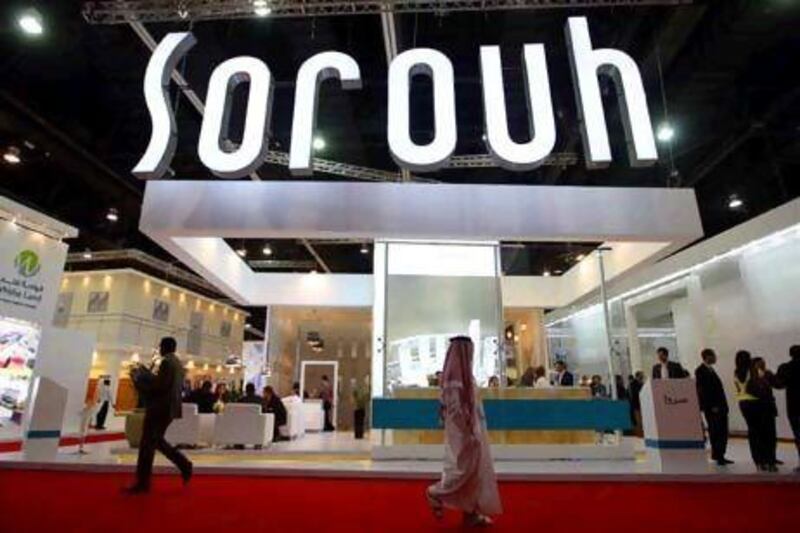Sorouh Real Estate, the second-largest developer in Abu Dhabi, has posted a Dh199 million (US$54.1m) loss for the final three months of last year, compared with a Dh28.1m profit in the same period in 2009.
The fall came as it wrote down the value of properties and money owed to it from sub-developers.
Provisions to cover possible bad debts increased to Dh141.9m in the fourth quarter, from Dh58m in the same period in 2009, while impairments rose to Dh162.9m from Dh29.77m in the year-earlier period.
Sorouh's full-year profits were lower than analyst expectations because of delays in delivering the Sun and Sky towers on Reem Island.
The company said yesterday it expected to hand over those homes and offices to owners by the end of the first quarter of this year, more than nine months after the original delivery date.
Gurjit Singh, the chief operating officer of Sorouh, said the impact of the global financial crisis on the local property market and regulatory hurdles related to Reem Island had pushed back the date.
"The overall delays will help smooth out deliveries," Mr Singh said.
Those deliveries will provide an injection of cash as buyers pay their final instalments and allow the company to book all the sales as revenue for the first time.
"I think the most significant thing now is delivery," said Richard Amos, the chief financial officer of Sorouh. "We are moving into a phase of delivery and can bear the fruit of all the investment we have put into the business."
Mr Amos said apart from several plots of land in the Shams Abu Dhabi project, Sorouh was not making many new sales.
But collections were continuing at a significant rate.
Sorouh collected Dh1 billion last year, comprising Dh650m of land payments from sub-developers and Dh350m from home buyers.
"We are collecting money every day," Mr Amos said. "We chase people up. We are in constant negotiation with the sub-developers who are having difficulty in paying."
The company was also honing its "price structures" to become more competitive in the market, he said.
Mr Singh said successfully renting out offices would require rent-free periods and other incentives to lure tenants.
The company's full-year earnings reflect the challenging market conditions in the capital two years after the property downturn reduced prices and all but ended off-plan sales.
Sorouh reported a Dh16.1m profit for the whole of last year, compared with Dh494.9m in 2009.
Jones Lang LaSalle said in a report on Sunday that apartment rents dropped by another 14 per cent last year on the previous year, with some areas seeing falls as high as 35 per cent.
Rents for "grade A" office space declined by an average of 28 per cent on 2009.
The softening of the market showed the clearest signs yet that Abu Dhabi's property market was beginning to face an oversupply of units.
"While developers have scaled back many projects since the market correction at the end of 2008, the additional supply entering the market is generating an oversupply situation for most asset prices," the report said.
Mr Singh said those conditions meant developers would succeed only if they "mark to market", meaning lower their prices to the level that residents or businesses believe is affordable.
So far, the company's "rent-to-own" scheme to attract new buyers has had limited pickup in the market.
"It's all about pricing structures now," Mr Singh said.






